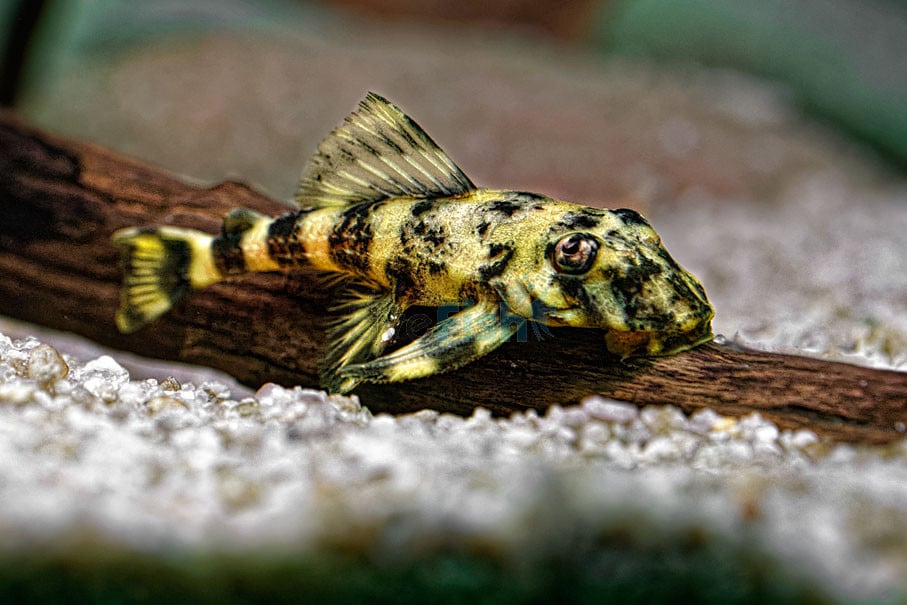Fish & Bird Emporium
Clown Pleco (Panaque maccus)
Clown Pleco (Panaque maccus)
Couldn't load pickup availability
Clown plecos (scientific name: Panaque maccus) are naturally found primarily in Venezuela but have been documented in Columbia as well. The most heavily condensed areas where they live are in the Caroni and Apure River basins which cover a significant amount of ground across the country.
Due to the amount of decaying vegetation in their natural habitat these fish are quite good at dealing with low-visibility and slightly dirty water. This hardiness is something that many aquarium catfish species have, and the clown pleco is no exception.
The typical clown pleco lifespan is between 10-12 years when properly taken care of. This is one of our favorite parts of owning this fish because you’ll have quite a long time to develop a bond.
The average clown pleco size is roughly 3 and a half inches long. Their max size is somewhere in the 4-inch range but that’s very uncommon.
Clown pleco care is very low maintenance and straightforward. Aquarists of all experience levels successfully keep these fish without any problems. As long as you provide them with the right environment and stay consistent with monitoring the water, you’ll be just fine.
Even though clown plecos are hardy fish, you should always work hard to maintain the recommended water parameters. Keeping levels consistent really isn’t that tricky once you get the hang of it, and it will go a long way in making sure they’re happy and healthy.
Water temperature: 73°F-82°F
pH levels: 6.8 to 7.6 is ideal
Water hardness: 10 dGH
Driftwood and clown plecos are like peanut butter and jelly. These fish love to hide in, explore and even snack on driftwood. A good clown pleco diet will also consist of various sinking plant-based food. Algae wafers are a great option as well as vegetables like lettuce, zucchini, cucumbers, and peas.
Lastly, there should be some meat in their diet to help provide them with enough protein. The two most common choices are bloodworm and daphnia. You want to make these the occasional snack (2-3 times per week), not a daily food.
Share



